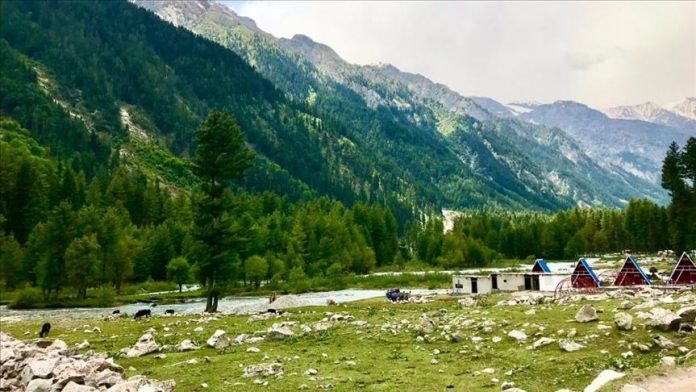The northwestern regions of Pakistan, notably the Kalam Valley and Malam Jabba, renowned for their winter snowfall and captivating landscapes, are currently grappling with an unforeseen challenge – the absence of snow this season. These areas, usually bustling with tourists seeking winter sports and breathtaking views, are witnessing a significant decline in visitor numbers, with a notable 60-70% decrease.
The impact on the local economy is profound and multifaceted. Tourism, a crucial source of revenue for the region, is taking a severe hit. The allure of these destinations lies in their winter charm, attracting tourists who contribute substantially to the local economy through accommodation, dining, and recreational activities. The lack of snowfall has translated into vacant hotel rooms and reduced customer activity in shops, posing immediate challenges to business owners.
Hoteliers are confronted with a surplus of empty rooms, leading to financial strain and potential layoffs. Shop owners, reliant on the tourist influx, are experiencing reduced footfall, impacting sales and livelihoods. The economic repercussions are not confined to the tourism sector alone; the downturn is anticipated to extend its reach to agriculture and hydroelectricity.
In these regions, tourism often intertwines with agriculture and hydroelectric projects to sustain the local economy. The economic slowdown can disrupt the livelihoods of those involved in agriculture, as they depend on the seasonal influx of tourists for income. Moreover, hydroelectricity, a key energy source for the region, may face challenges due to altered water usage patterns.
This situation underscores the vulnerability of economies heavily reliant on seasonal attractions and emphasizes the need for diversification. It prompts a broader conversation on sustainable development strategies that consider the unpredictability of weather patterns. As these regions navigate the current challenges, adaptive measures and economic resilience will be crucial for mitigating the impact and ensuring long-term sustainability.


